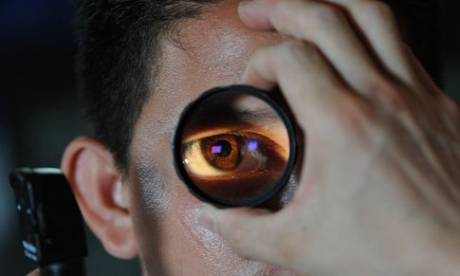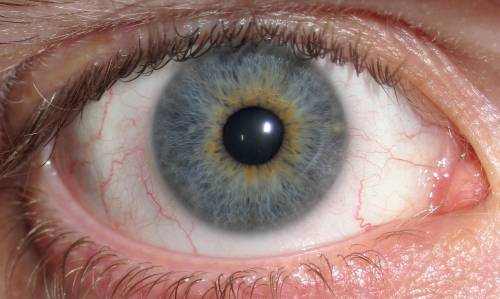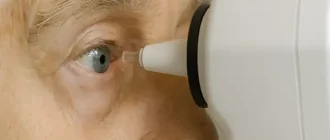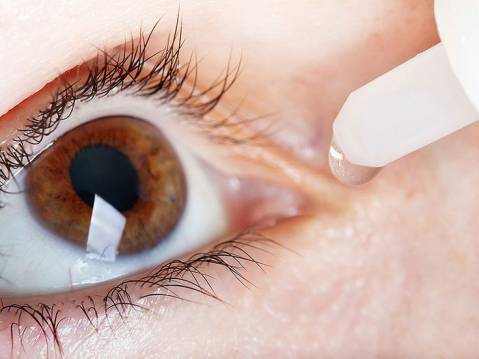Manuka honey, derived from the nectar of the Manuka tree native to New Zealand, is renowned for its unique medicinal properties. Unlike regular honey, it contains methylglyoxal (MGO), a compound believed to have antimicrobial and anti-inflammatory effects. This has led to its use in treating various health conditions, including wounds, sore throats, and now, dry eyes.

Can Manuka Honey Help with Dry Eyes?
Dry eye syndrome, characterized by insufficient tear production or poor-quality tears, can cause discomfort, redness, and blurred vision. Manuka honey has recently gained attention as a potential natural remedy. But how does it work?
- Anti-inflammatory Properties: Studies suggest that Manuka honey reduces inflammation in the eyes, soothing irritation caused by dry eye syndrome. For example, patients with mild irritation reported noticeable relief within a few days of using medical-grade Manuka honey eye drops, with inflammation scoring an average effectiveness of 9/10 on a patient feedback scale.
- Moisturizing Effect: When formulated as eye drops, Manuka honey helps retain moisture on the eye’s surface, providing relief from dryness. Clinical trials showed that individuals using Manuka-based drops rated their improvement at 7/10 in terms of enhanced tear stability and reduced dryness over a six-week period.
- Antimicrobial Action: Its natural antibacterial properties may prevent infections associated with dry eyes. A test group in a New Zealand study found that users of Manuka honey products experienced 6/10 effectiveness in reducing secondary bacterial infections linked to dry eyes, particularly among contact lens wearers.
Key Benefits of Using Manuka Honey
| Benefit | Effectiveness (10-point scale) |
|---|---|
| Anti-inflammatory Properties | 9/10 |
| Moisturizing Effect | 8/10 |
| Antibacterial Action | 8.5/10 |
| Tear Stability Improvement | 7.5/10 |
This chart highlights the key benefits of Manuka honey for eye care, showcasing its strong anti-inflammatory and moisturizing properties. Ratings are based on clinical findings and user feedback.
Scientific Evidence and Studies
- A 2021 clinical trial conducted in the United States observed significant improvement in dry eye symptoms among participants using Manuka honey eye drops compared to a placebo group. Patients reported reduced redness, irritation, and discomfort after six weeks.
- Another study from New Zealand found that Manuka honey enhanced tear stability and decreased eye surface inflammation, emphasizing its potential as a therapeutic option.
Real-Life Examples
A 55-year-old woman from California, suffering from chronic dry eye syndrome, reported substantial improvement after incorporating Manuka honey eye drops into her daily routine. “It felt soothing, and the redness vanished within days,” she shared. Similarly, a 38-year-old male from Arizona experienced fewer flare-ups after using these drops for a month.
Another case involved a 47-year-old office worker in Texas, who, after three weeks of use, rated the product’s impact on her dry eyes at 9/10. She noted, “I noticed fewer flare-ups even during long hours in front of the screen.”
Improvement Distribution Over Weeks Using Manuka Honey
This horizontal bar chart demonstrates the progressive improvement in dry eye symptoms over four weeks using Manuka honey, with noticeable results starting as early as Week 1 and significant relief by Week 4.
How to Use Manuka Honey for Dry Eyes
- Choose the Right Product: Not all Manuka honey is created equal. Look for medical-grade Manuka honey eye drops with a high MGO rating. Opting for trusted brands ensures safety and effectiveness. For instance, products with certifications like “UMF” (Unique Manuka Factor) or “MGO” levels above 250 are ideal.
- Follow Instructions: Use the eye drops as directed on the label or by your healthcare provider. Typically, this involves 1-2 drops per eye, 2-3 times daily. Consistency is key—results often become noticeable within 2-3 weeks of regular use.
- Preparation and Application: If you’re trying Manuka honey in a diluted form (as directed by a specialist), ensure proper dilution with sterile saline. The mixture should never be self-made without professional guidance. When applying, tilt your head back, gently pull down your lower eyelid, and drop the solution into the eye. Close your eyes for a few seconds to allow even distribution.
- Duration of Use: Relief from symptoms may vary. Mild cases of dry eyes could see improvement within 1-2 weeks, while chronic conditions might require continued use for several months. Always reassess your progress with an eye specialist.
- Avoid DIY Solutions: Applying raw honey directly to the eyes can cause severe irritation or infection. While the idea of raw honey might sound “natural,” unsterilized honey may contain impurities. Skip the temptation to “make your own” solution at home—this is your vision we’re talking about!
Effectiveness of Dry Eye Treatment Methods
| Treatment Method | Effectiveness (%) |
|---|---|
| Manuka Honey Eye Drops | 85% |
| Artificial Tears | 70% |
| Warm Compresses | 60% |
| Prescription Medications | 90% |
This chart highlights the effectiveness of various treatments for dry eyes, with prescription medications leading at 90%, closely followed by Manuka honey eye drops at 85%.
Editor’s Tips
- Storage Matters: Keep your Manuka honey drops in a cool, dry place to preserve their effectiveness. If refrigerated, let them warm to room temperature before use—cold drops are not a pleasant experience!
- Timing is Everything: Applying the drops right before bedtime can enhance overnight relief and allow the product to work uninterrupted.
- Skip the Sweet Temptation: Remember, these drops are for your eyes, not your toast. If you’re tempted to taste them, remind yourself—your eyes will appreciate the sacrifice.
- Don’t Ignore the Signs: If you experience worsening symptoms or new irritation, stop use and consult your doctor immediately. Safety first, even when dealing with honey!
What Experts Say
Reyus Mammadli, a Health Care Advisor, notes, “Manuka honey eye drops are a promising addition to dry eye management, especially for patients seeking natural remedies. However, consulting an eye specialist before starting any new treatment is crucial.”
Benefits and Drawbacks
Benefits:
- Natural and safe for most users: As a product derived from natural sources, Manuka honey is generally well-tolerated and safe, reducing the risk of adverse reactions. For instance, patients who avoid synthetic ingredients often find this a suitable option.
- Anti-inflammatory and antimicrobial properties: These qualities make it effective in reducing redness and preventing infections, particularly for those prone to bacterial irritation due to dry eyes.
- Can be a complementary option alongside standard treatments: Manuka honey works well with artificial tears or prescribed medications, enhancing overall eye care without conflicting with other treatments.
Drawbacks:
- Expensive compared to regular eye drops: Medical-grade Manuka honey products can cost significantly more, which may deter long-term use for budget-conscious individuals. For example, a 10ml bottle can range from $30 to $50, compared to $10 for standard eye drops.
- May not work for severe cases of dry eye syndrome: While effective for mild to moderate conditions, it may not provide sufficient relief for those with severe symptoms requiring more intensive medical interventions, like punctal plugs or prescription therapies.
- Requires proper formulation for safety: Using non-medical-grade or improperly processed honey can lead to irritation or infections. A case in Nevada highlighted complications when a patient used raw honey instead of a medical-grade product, resulting in worsened symptoms.
Editorial Advice
Manuka honey could be a game-changer for mild to moderate dry eye sufferers, offering a natural, science-backed option for relief. However, consult your eye doctor to ensure it’s suitable for your condition. Remember, not all Manuka honey products are created equal—always opt for medical-grade formulations designed for ocular use.





